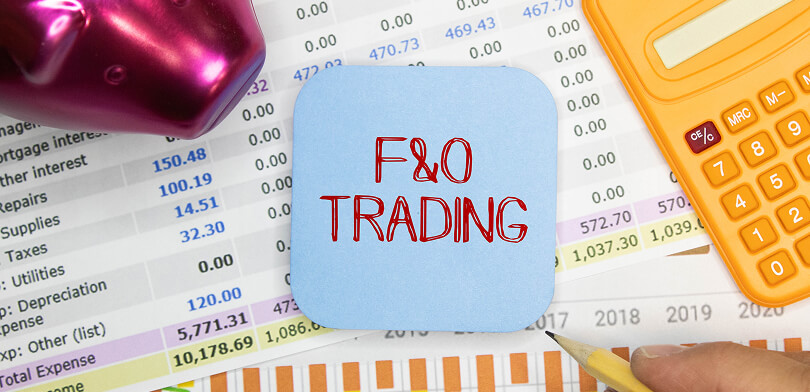Underlying assets are the foundation of various financial instruments, such as stocks, bonds, and derivatives, and play a pivotal role in determining their value and performance. These assets represent the tangible or intangible entities upon which financial contracts are based, and their fluctuations directly impact investment outcomes.
By exploring the different types of underlying assets and diving into their significance in investments, we will gain a comprehensive understanding of the detailed workings of the financial market and can make informed decisions to maximise returns while managing risks effectively.
Topics Covered:
- What are Underlying Assets?
- Types of Underlying Assets
- Utilising Underlying Assets in Investment Instruments
- Conclusion
What are Underlying Assets?
So, what are underlying assets? In simple terms, underlying assets refer to the assets that provide the value and support for financial instruments like derivatives. These assets can range from stocks and bonds to commodities and mutual funds. The fundamental role of underlying assets lies in their ability to determine the value and performance of these financial products.
For instance, in the case of derivatives such as options or futures contracts, the value of the derivative is derived from the underlying asset, which could be a stock or a commodity. Changes in the price or performance of the underlying asset directly influence the value of the derivative. Understanding the characteristics and behaviour of underlying assets is crucial for investors as it allows them to assess the potential risks and rewards associated with financial instruments.
Step into the world of Futures & Options — Open your Demat account
Types of Underlying Assets
The underlying asset choice depends on the investor’s financial goals, risk tolerance, and market knowledge. Let’s delve into these different underlying asset types and understand their unique features.
-
Equities
Equities, also called stocks or shares, symbolise ownership interests in a company. Publicly traded companies issue these, making them one of the most prevalent types of underlying assets in the financial world. Key attributes of equities include ownership rights, voting privileges, and the opportunity to receive dividends.
Investors often turn to equities for long-term investment prospects and capital appreciation. While equities can provide significant returns but carry a higher risk than other asset types due to market volatility. If an investor, for instance, purchases shares of Apple Inc., they acquire an equity stake in the business.
-
Bonds
Bonds are debt securities issued by governments, municipalities, or corporations. When investors purchase bonds, they’re effectively loaning money to the issuer in return for regular interest payments and the principal amount upon maturity.
Additionally Read: About Demat Account
Bonds are characterised by fixed interest rates, predetermined maturity dates, and credit ratings that reflect the issuer’s creditworthiness. They’re a popular choice for income generation and capital preservation, offering a lower risk than equities but also comparatively lower potential returns.
-
Commodities
Commodities refer to raw materials or primary agricultural products available for purchase and sale in financial markets. This category includes a wide range of goods, from gold and oil to wheat and natural gas. Commodities are characterised by their physical deliverability, standardised contracts, and price movements driven by supply and demand dynamics.
Investors often use commodities for hedging against inflation, diversifying portfolios, and speculative trading. Commodities carry a moderate level of risk, with potential returns heavily influenced by market conditions. For instance, an investor might purchase gold futures contracts to capitalise on the price movements of gold.
-
Currencies
Currencies, also known as forex or foreign exchange, denote the monetary units of various countries. They’re traded in pairs, with the exchange rate determining one currency’s value relative to another. The currency markets are the largest financial markets worldwide, with high liquidity and continuous trading.
Currencies exhibit high volatility, and round-the-clock trading, and are influenced by economic and geopolitical factors. They’re commonly used for international trade, investment, and speculative purposes. Despite offering potential returns through currency appreciation or carry trades, they carry a high-risk profile due to market fluctuations.
An investor, for example, may trade the EUR/USD currency pair, betting on the euro’s strength against the U.S. dollar.
-
Indices
Indices, or indexes, are statistical measures representing the performance of a specific group of stocks. They provide a snapshot of the overall health and performance of a particular stock market segment. Indices can be constructed based on various criteria, such as market capitalisation, sector, or industry.
They offer a way for investors to track market trends and to invest in the broader market or specific sectors without buying individual stocks. Examples of well-known indices include the Nifty 50, which tracks the performance of 50 large companies listed on the National Stock Exchange (NSE), and Sensex, which includes the biggest 30 stocks listed on the Bombay Stock Exchange (BSE).
Investing in indices’ risk and return profiles generally reflects the particular market or sector they represent.
-
Real Estate
Real estate is a tangible asset comprising land and any structures or resources attached to it, such as buildings, homes, minerals, water, and crops. Real estate can be categorised into four types: residential, commercial, industrial, and land. Investment in real estate can offer several advantages, including potential capital appreciation, rental income, and tax benefits.
However, it carries risks like property damage, market fluctuations, and illiquidity. Real estate investment can be done directly by purchasing properties or indirectly through Real Estate Investment Trusts (REITs).
Utilising Underlying Assets in Investment Instruments
The choice of the right underlying asset is essential for effective investment strategies. An underlying asset refers to the financial instrument upon which a derivative contract or investment product is based.
Options, for instance, are contracts that give the holder the right to buy or sell an underlying asset at a predetermined price within a specified timeframe. In this case, the underlying asset can be stocks, indexes, commodities, or currencies. By selecting the appropriate underlying asset, investors can tailor their options strategies to capitalise on market movements and manage risk.
Similarly, futures contracts use underlying assets, such as commodities or financial indexes, to facilitate the trading of standardised contracts. These contracts enable investors to speculate on price movements or hedge against potential risks in the underlying asset’s market.
Conclusion
Understanding different types of underlying assets is crucial for making well-informed investment decisions. This post has highlighted the significance of selecting the right underlying asset in options, futures, and ETFs. By comprehending the underlying asset, investors can customise their strategies to optimise returns and manage risks effectively.
Underlying assets in financial markets encompass a diverse range, including stocks, bonds, commodities, currencies, and indices. Explore these asset classes effectively by leveraging the benefits of a free demat account, which facilitates easy access to trade and manage various types of underlying assets efficiently.
















